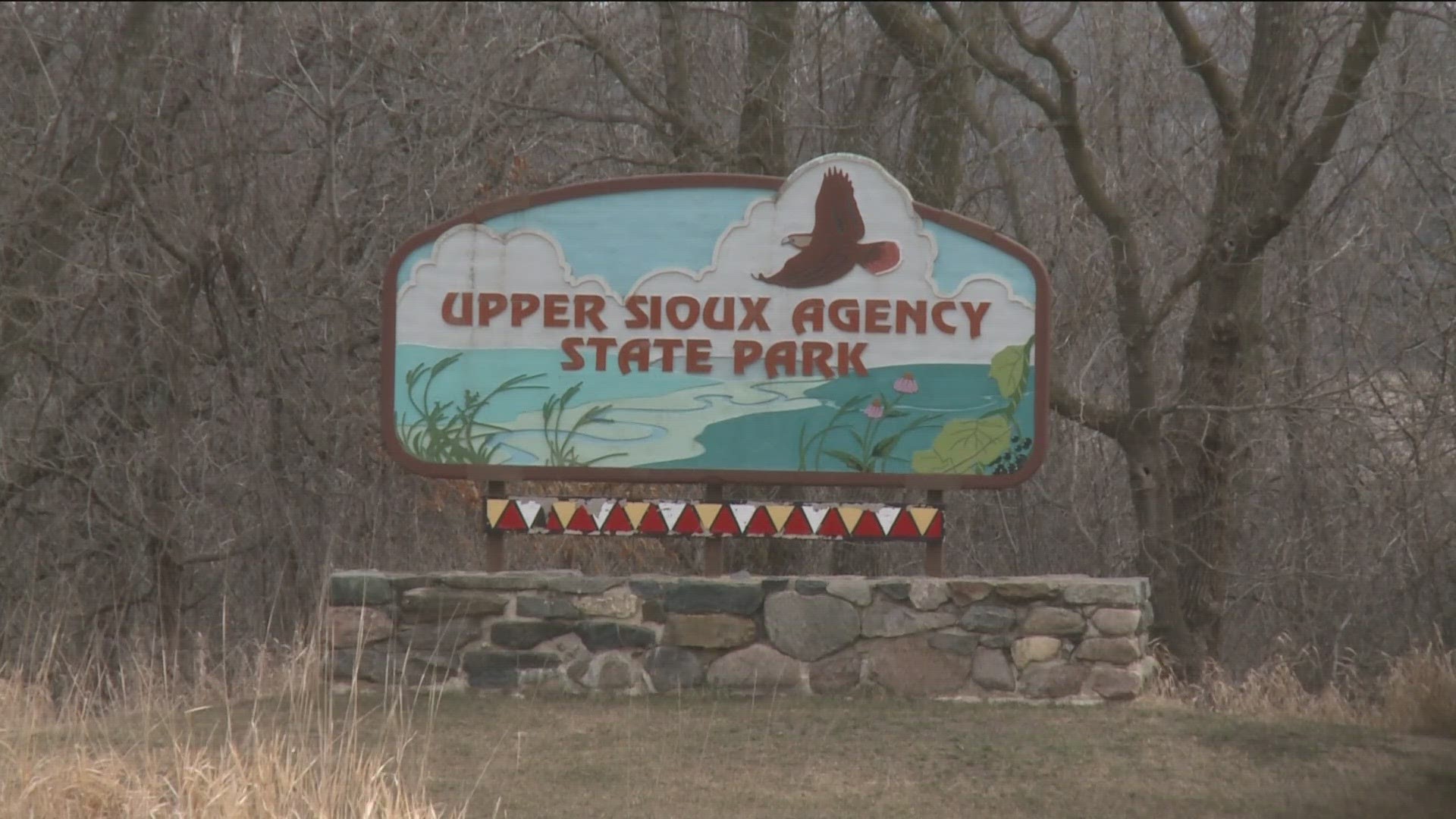MINNESOTA, USA — A vast area of land located near Granite Falls is the sacred homeland of the Dakota people, but it was made into a state park in the 1960s called Upper Sioux Agency State Park.
One hundred years prior, it was also the site of starvation and death of native people during the summer of 1862 when the U.S. government didn't provide the food promised by a treaty.
On Friday, descendants of those who died shared their stories as part of a land transfer ceremony. Last year, Gov. Tim Walz approved legislation directing the Department of Natural Resources and the Minnesota Historical Society to transfer the land to the Upper Sioux Community.
"Many of our members visit the park to enjoy its beauty. Sometimes just to be in the presence of the creator. To seek comfort during a time of grief or loss. To watch and enjoy the plants and the flowers, to look for sage or to just meditate and pray," said Ellita Gouge, an Elder whose great, great grandfather, a Dakota warrior, fought in the 1862 Dakota War. "My son had almost died. Where did I go? I went to the park."
As soon as documents were signed, hugs were given and speeches delivered, families went to the park to hang a "Land Back" banner below the state park sign.
Almost 20 years ago, Gouge met with Upper Sioux Community Board of Trustees Chairman Kevin Jensvold about the land becoming a state park, and they decided to ramp up efforts to transfer the ownership.
"I shared my feelings of annoyance, disgust and downright anger that I must pay to enter the park for medication and prayer," Gouge said.
"Were it not for her and that simple conversation we had that day, we probably wouldn't be here," Jensvold said.
Gov. Walz, Lt. Gov. Peggy Flanagan joined lawmakers and DNR representatives for the historical signing.
"That is not a place nor should it ever have been a place where picnic tables sat on top of your relatives," Walz said. "I think the folks at the Interior Department in D.C. said this was the first time a governor and a tribal chairman have ever come together on an issue to try and get back. They were kind of shocked. They said, 'What you're out here to give back a state park? Let's see what we can do.'"
Leading up to this, some local leaders expressed concerns over the state park's closure due to the potential impact on tourism and the economy, including Mayor Dave Smiglewski who recently passed away.
Still, last month the park closed in preparation for the transfer. Whether any portions of the area will reopen to the public is now up to the Upper Sioux Community.
"Mission accomplished," said Gouge, followed by a round of applause. "Even if it did take 19 years."
Watch more local news:
Watch the latest local news from the Twin Cities and across Minnesota in our YouTube playlist:
WATCH MORE ON KARE 11+
Download the free KARE 11+ app for Roku, Fire TV, Apple TV and other smart TV platforms to watch more from KARE 11 anytime! The KARE 11+ app includes live streams of all of KARE 11's newscasts. You'll also find on-demand replays of newscasts; the latest from KARE 11 Investigates, Breaking the News and the Land of 10,000 Stories; exclusive programs like Verify and HeartThreads; and Minnesota sports talk from our partners at Locked On Minnesota.
- Add KARE 11+ on Roku here or by searching for KARE 11 in the Roku Channel Store.
- Add KARE 11+ on Fire TV here or by searching for KARE 11 in the Amazon App Store.
- Learn more about the KARE 11+ app for Apple TV in the Apple App Store.
- Learn more about KARE 11+ here.

